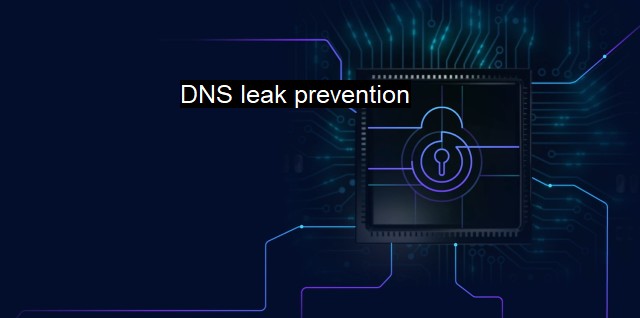What is DNS leak prevention?
The Importance of DNS Leak Prevention in Maintaining Online Privacy and Security in the Digital Age
'DNS leak prevention' is a significant term that pertains to safeguarding a user's online privacy and maintaining the integrity of their internet connections. Standing for 'Domain Name System', DNS constitutes a critical yet mostly overlooked component of our everyday browsing that, if malfunctioned or exploited, could expose individuals and enterprise systems to various security risks, such as internet censorship, surveillance and malicious attacks.When we type a web address into our browser to visit a website, a DNS query is made. This query converts the human-readable domain name to an IP address, which can be used by our machines to connect to the destination server. This entire operation is typically carried out by a DNS Server that, in most cases, is provided by your Internet Service Provider (ISP).
A DNS leak occurs when these requests are exposed to others, e.g., the ISP or even a third-party DNS server. Even if you're connected to a Virtual Private Network (VPN), sometimes due to various configurations and the unique complexities of the numerous network protocols, your DNS queries might bypass the encrypted VPN tunnel and flow into the open, unencrypted network, which is a DNS leak. Such DNS leaks, albeit unintentional, inadvertently expose the user's browsing information directly to the ISP. For individuals in countries where online censorship is a significant issue, a DNS leak can result in restricted access to certain websites or content.
DNS leak prevention is meant to counteract this threat - ensuring your computer's DNS queries are shielded and securely passed through the protected VPN tunnel rather than the unencrypted path. With effective DNS leak prevention, the ISP, governments, and hackers remain ignorant of your internet activities, thus preserving your privacy and confidentiality.
Different methods are integrated into VPN software for efficient DNS leak prevention. One of the familiar techniques is to push all DNS lookups through the VPN provider's own internal DNS servers rather than using third-party servers or those of the ISP. This ensures that the DNS queries stay within the encrypted tunnel.
Software-based solutions — often integrated into the VPN client — detect and block any attempts of your system to connect to unauthorized DNS servers. This maintains the integrity of your online activities even in the event of odd network environments or misconfigurations, hence offering enhanced security.
Undeniably, DNS leak prevention is an essential facet of contemporary cybersecurity measures. Parallely, as end-users, we should also understand the importance of using reliable VPN services with strong DNS leak prevention mechanisms as a method for ensuring our digital privacy. In an age where the average internet user faces an array of threats, comprehensive antivirus software should also add critical components like DNS leak preventers to its suite of tools to guarantee that the user's anonymity and privacy are well-protected.
While a DNS leak doesn't necessarily mean that your system is infected with malware, it presents an imminent threat to your privacy and can inhibit the full potential of your VPN security. Hence, seeking and ensuring DNS leak prevention is a substructure in the grand design for the achievement of robust cybersecurity and antivirus pursuit.
It's worth restating that ensuring your cyber hygiene goes beyond a good antivirus program and includes being aware about DNS leaks and how to prevent them. Leading a secure online life involves consistently safeguarding every aspect of your digital world - and DNS leak prevention essentially forms a crucial part of that cyber-defense matrix.

DNS leak prevention FAQs
What is DNS leak prevention and why is it important?
DNS leak prevention is a technique used to prevent the leakage of DNS requests outside of a private network. It is important because DNS requests can reveal information about the websites a user visits, which can compromise their privacy and security.How does DNS leak prevention work?
DNS leak prevention works by routing all DNS requests through a secure server, either within the private network or through a third-party service. This ensures that no DNS requests are leaked outside of the network, preventing potential security breaches.What are the risks of DNS leaks?
DNS leaks can expose a user's online activity, including the websites they visit and the content they access. This information can be used by hackers, advertisers, or others to track, target, or exploit the user. In extreme cases, DNS leaks can lead to identity theft, financial fraud, or other serious security breaches.What tools can be used to prevent DNS leaks?
There are several tools available that can be used to prevent DNS leaks, including DNS leak prevention software, VPN services, and browser extensions. These tools work by encrypting and routing DNS requests through secure servers, ensuring that all traffic remains within a private network and cannot be intercepted or leaked outside.| | A | | | B | | | C | | | D | | | E | | | F | | | G | | | H | | | I | | | J | | | K | | | L | | | M | |
| | N | | | O | | | P | | | Q | | | R | | | S | | | T | | | U | | | V | | | W | | | X | | | Y | | | Z | |
| | 1 | | | 2 | | | 3 | | | 4 | | | 7 | | | 8 | | |||||||